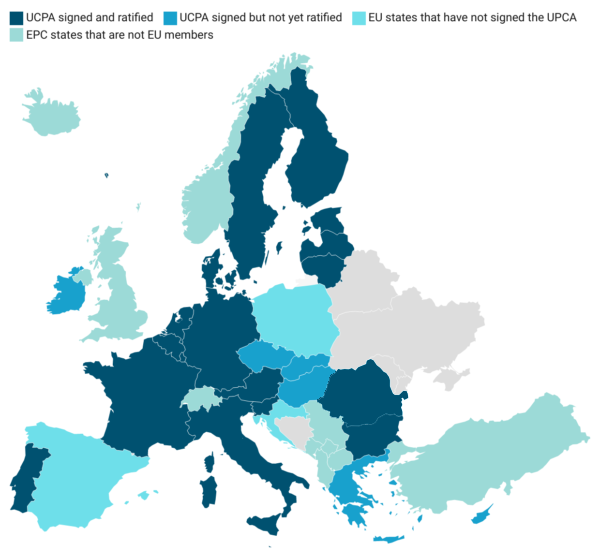
The Unified Patent Court (UPC) and the Unitary Patent (UP) – A new patent arena in Europe
On the 1st of June 2023, a new patent system entered into force in Europe. Below you will find answers to the most common questions in connection with this shift.
Brann’s team of European Patent Litigators is ready to assist you with any questions that you may have regarding the UP and the UPC.
A completely new system for patents in Europe which allows for patent protection in the majority of the EU countries via a single patent, the so-called European patent with a unitary effect (Unitary Patent, UP). UP is supplemented by a new patent court (Unified Patent Court, UPC). The UPC will deal with several different proceedings, for example concerning infringements and declarations of invalidity of classical European patents, unitary patents and supplementary protection certificates (SPC). The purpose of this change is above all to reduce the costs of patents in Europe and to increase the legal certainty for both patent holders and third parties. The legal basis for the UPC is two EU regulations and a Court agreement, the Unified Patent Court Agreement, UPCA. UPC’s working methods including guidelines can be found in the Rules of Procedures, RoP.
From the 1st of June this year, it is possible to obtain a UP. On the same day, the UPC became active. Since the UPC has jurisdiction not only over UPs but also over already granted and future classical European patents and applications, it will be possible to exempt classical European patents and patent applications from UPC’s jurisdiction for a transitional period of at least 7 years. A UP, on the other hand, can never be exempted from the UPC’s jurisdiction.
The European Patent Office will, just like today, examine and grant European patent applications. When a patent is granted, it is possible to choose between a UP or a classical European patent in the countries that have ratified the UPCA. In the other countries, that are not participating member states, you must choose the path of a classical European patent and validate the patent in the countries that so require and pay annual fees to each national patent office. If you choose a UP, the patent will take effect in the countries that have ratified the UPCA and only a single annual fee needs to be paid. The annual fee for a UP corresponds to the annual fee for a patent in the four countries where most classical European patents are traditionally validated. This makes it significantly cheaper to choose a UP if you want patent protection in many countries.
Currently, 18 EU countries have ratified the UPCA. Seven additional EU countries have signed the agreement but have not yet ratified it. Three countries, Spain, Croatia and Poland, have chosen to stay out completely.

If you are interested in patent protection in many European countries a UP will enable so at a substantially lower cost than a classical European patent. Litigating a patent before the UPC will probably also be cheaper and speedier than conducting parallel processes before national courts. As a patent holder, on the other hand, you also risk losing your patent in all participating countries in a single revocation process. Whether you want to take advantage of the new possibility of a UP or let your classical European patent be handled by the UPC are important strategic decisions where many factors influence what is best for your business.
If you do not want disputes concerning your existing and future European patents to be handled by the UPC you can, during a transitional period of at least 7 years, request that these be exempted from UPC’s jurisdiction (a so-called opt-out). An opt-out is valid throughout the lifetime of the patent. Even if you have requested that a European patent be exempted from the jurisdiction of the UPC, you may choose to opt it back in (once) if no dispute has yet been initiated before a national court. When future European patents are granted, you will have to decide if you want to have a UP or a classical European patent in the participating member states. If you choose a UP, a dispute will always be handled by the UPC while if you choose a classical European patent you can choose if you want a dispute to be handled by the UPC or national courts (by opting out the patent from the UPC).
Brann has a large team of authorized European Patent Litigators with various technical skills who can represent you before the UPC and who can also help you with all kinds of strategic advice regarding the UP and the UPC.








